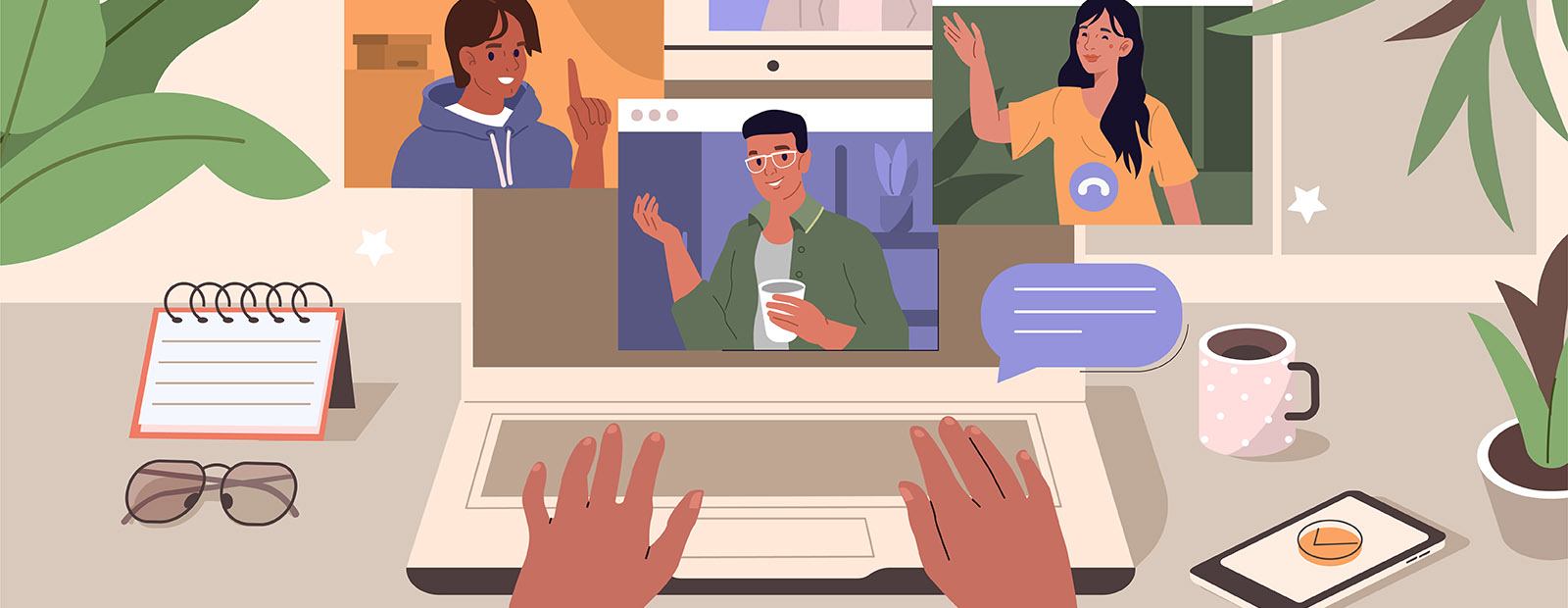We often talk about MacEwan’s campus community, but knowing exactly where to make connections that foster that sense of community isn’t always easy – especially during the rolling waves of a pandemic.
“Isolation has been an issue throughout the past two years, especially for students who have started their studies online and have missed out on some of the traditional face-to-face opportunities to meet people and make connections organically,” says Annelise Lyseng, a psychologist with Wellness and Psychological Services.
That’s why, explains Lyseng, MacEwan Mental Health Week 2022, which runs from January 24 to 28, will focus on building connections and supportive communities.
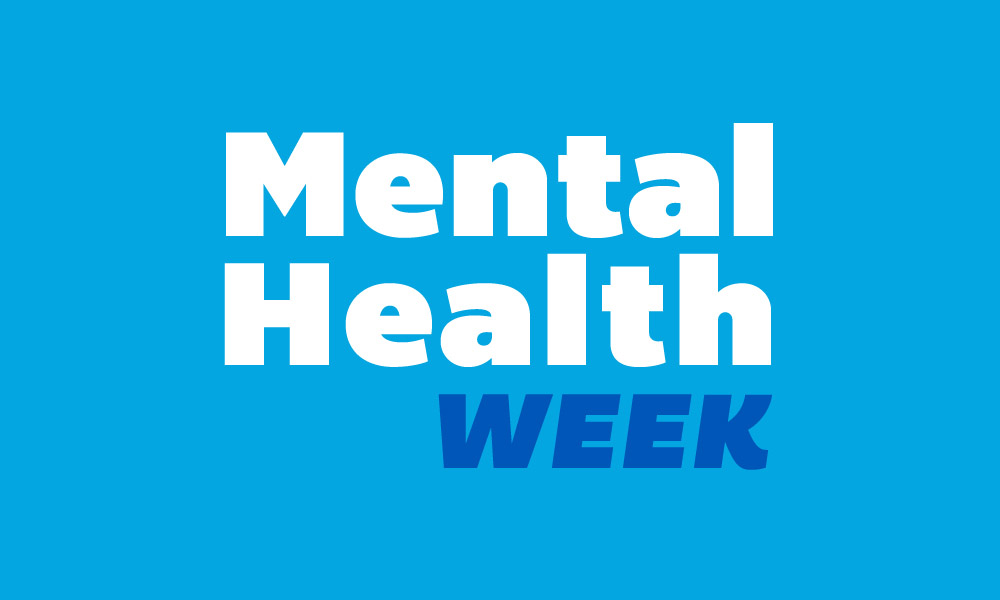 FIND EVENTS
FIND EVENTS
“The 2021 Canadian Social Connection Survey found that even a small amount of time spent with others can have a positive impact on well being – participants who spent less than an hour with friends over a week were less likely to feel lonely than those who didn’t spend any time with their peers,” she says. “You don’t have to create this huge elaborate construct to feel better or feel more connected.”
Here, Lyseng, along with current students and alumni, share their tips, their best advice and their personal experiences finding the supportive connections we all need to get through difficult times.
1. Lean into the connections you already have
The fact that you’re in the same class as another person means you already have something in common. In the old days, we used to suggest simply turning to the right or left in your classes and sparking up a conversation – that’s what Cassie Leung (BA ’21) did from day one. “I didn’t know anybody, so I started exchanging numbers with other students in case any of us got sick or had to miss a class,” says the anthropology major who graduated this past fall. “A few years later, those same people have become some of my best and closest friends. I can’t imagine my life without them.”
Not possible when your classmates aren’t in the same room? Fair, but students are creative and from the beginning of the pandemic, they started setting up Discord groups for classes as a placeholder for in-person interactions. If you don’t know if there’s a group for the courses you’re registered in, you can always post to the MacEwan University Student Experience Facebook page.
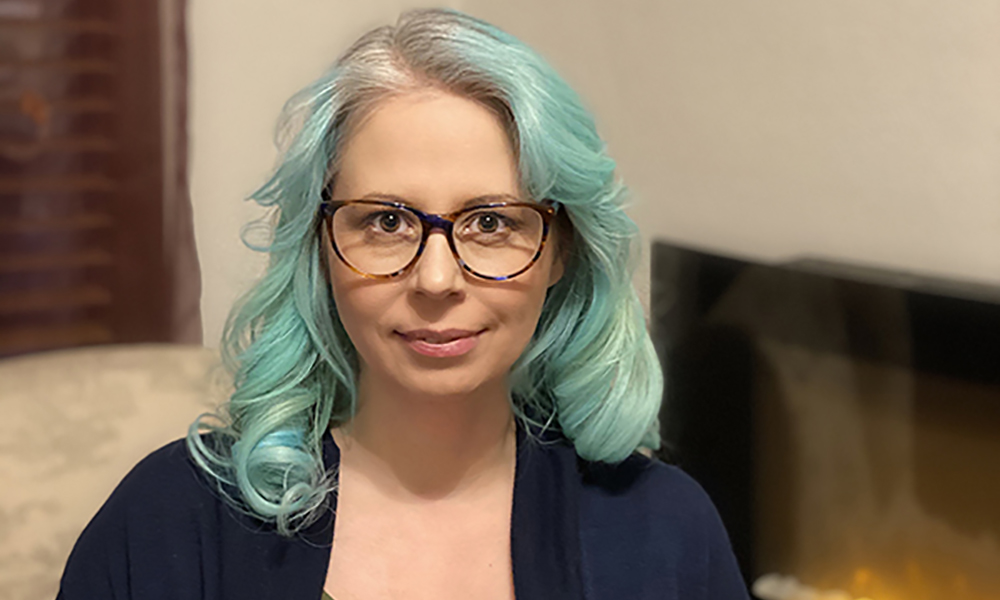 FULL STORY
FULL STORY
Last year, Denise King, a fourth-year Bachelor of Arts, philosophy student, made several new connections in Discord groups for her classes. That sparked a big idea. Over the summer, she pitched starting a Discord server specifically for first-year students. Today, the server has almost 1,300 members and there are plans to expand the server to include all MacEwan students beginning later this term.
“We want it to be pretty chill – a safe, casual and fun space for students to just be themselves, to talk about their day, rant a little bit, feel supported and hopefully find a new group of friends,” explains King, who also works as the First-Year Experience (FYE) student assistant.
It has turned out to be just that. Now students connect on the FYE Discord 24/7 (there’s even a 1 a.m. crew, says Denise). They game together, celebrate their wins, chat about anything they’re reading that isn’t a textbook, and even meet up in person – during the Fall New Student Orientation students from the Discord server planned to meet on campus.
“I was wandering around the new SAMU building when a group of people came up to me and said, ‘Hey Denise, it’s us from the Discord server.’ It felt so awesome to see them on campus and touring together. To me, seeing those online connections turn into in-person connections was the coolest thing ever."
One way students connect online is through a series of what King calls interest channels – gaming, arts, movies, books. Common interests are a great place to begin, whether online or in-person.
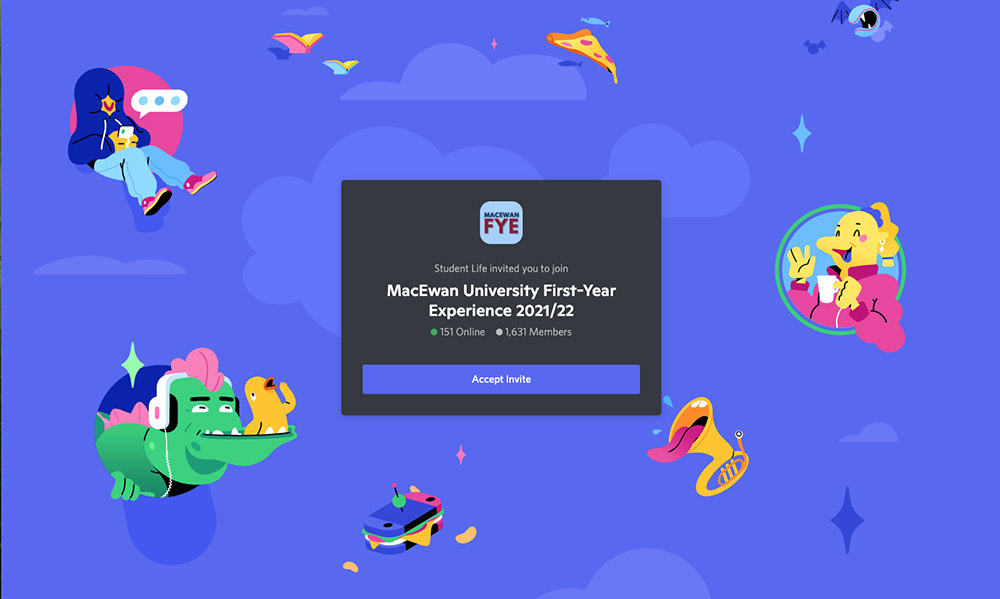 Go to the Discord server
Go to the Discord server
2. Focus on what interests you
No matter what your interests may be, chances are there’s a student group for that, according to Thomas Cross-Trush.
“SAMU student groups are fantastic because there are just so many of them,” says the vice-president Student Life for the Students’ Association of MacEwan University (SAMU). “By joining a group, you get a built-in base of potential friends who have similar interests.”
Some student groups are a bit less active these days, but there are still several finding ways to make it work – and some brand new groups just forming, including an ethical hacking club and a real estate club.
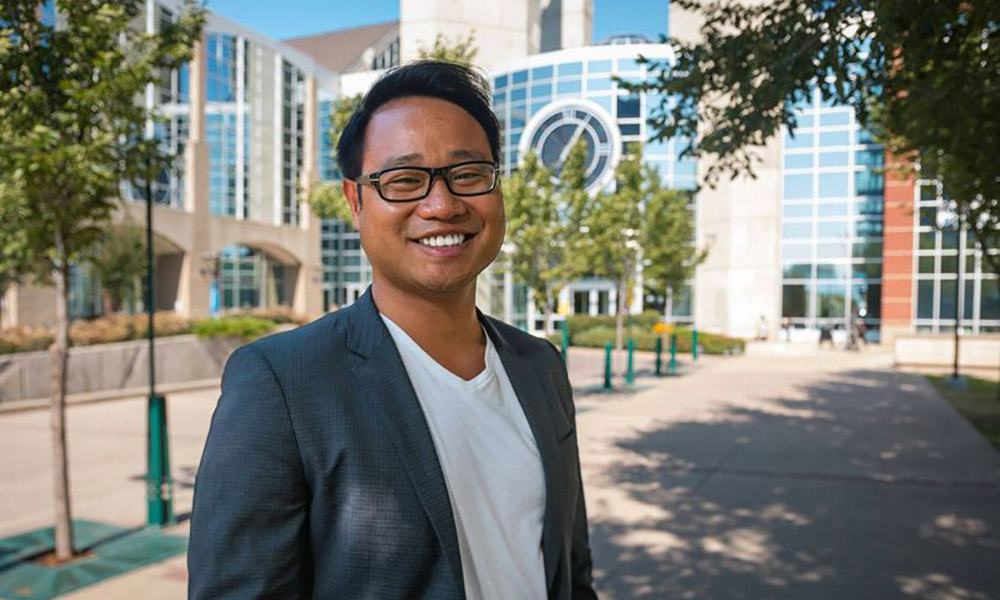 FULL STORY
FULL STORY
If you’re passionate about a particular issue – ending sexual violence, championing diversity and equity, making life better on campus or promoting mental health – you might want to mark your calendar for later this term when programs like the MacEwan Ambassasdors, Peer Health Education Team, Champions of Diversity and Equity (C.O.D.E.), and MacEwan Anti-Violence Education Network (MAVEN) take applications.
Coming from the other side of the world can also bring students together. MacEwan International hosts all kinds of events and activities to help students connect.
3. Remember: It’s not about numbers
Connection is subjective, says Lyseng. “Someone can have lots of contacts on social media and still feel really lonely. Or someone might have just a couple of really close friends, but the depth of those connections is such that they don't feel isolated.”
What feels right for you is more important than measuring how many contacts or how many friends other people might have, says Lyseng. “Ask yourself how connected you feel with the people you have in your life. Do you have room for more connections right now and, if so, be strategic in where you look for them.”
Sometimes you don’t need to look very far.
“Maybe it feels a bit safer to connect back with people in other areas of your life – someone from high school or a family member that can act as a bit of a bridge,” says Lyseng. “Making space for people who have been an important part of your life in the past and seeking out those supportive connections where you can feel heard and safe might be a good place to begin while you are also looking for opportunities to branch out and meet new people in new ways.”
4. What to do when any of these things feels like too much
If you’re struggling with loneliness and making connections, people are waiting to help. Lyseng says that Wellness and Psychological Services has a series of eight-week group counselling options scheduled for the winter, including a session that focuses on building social confidence.
“It can be a really good place to connect with other people who might be experiencing some similar challenges, to feel more validated and less isolated in some of your experiences,” says Lyseng.
SAMU’s Peer Support service is also a good option. The service is entirely operated by student volunteers trained to help their fellow students work through any issue, including loneliness and isolation. Peer Support volunteers are available through live chats or video chats on weekdays from 9 a.m to 5 p.m.
“Nothing is off limits, and absolutely everything is confidential,” says SAMU VP Thomas Cross-Trush.
No matter what, says Lyseng, feelings of isolation and loneliness are normal – especially during difficult times.
“Ultimately, we are wired to try and connect, so feeling lonely when we aren’t able to do that is natural,” says Lyseng. “It can feel really tricky to try to reach out, but there are so many physical and psychological health benefits to finding that sense of connection – whatever it might look like for you.”
 FIND EVENTS
FIND EVENTS
